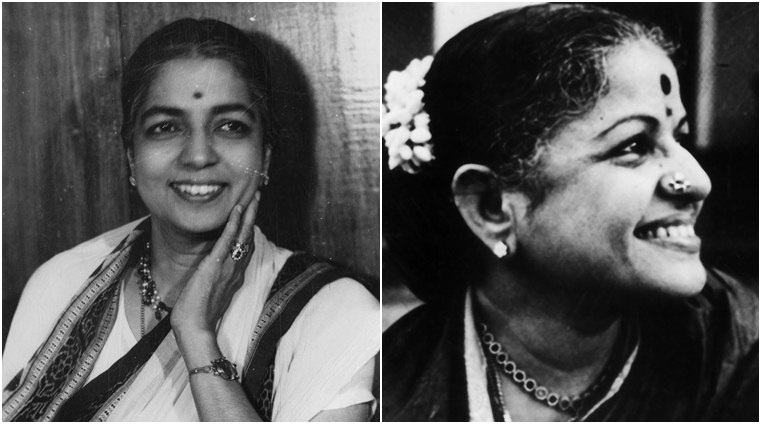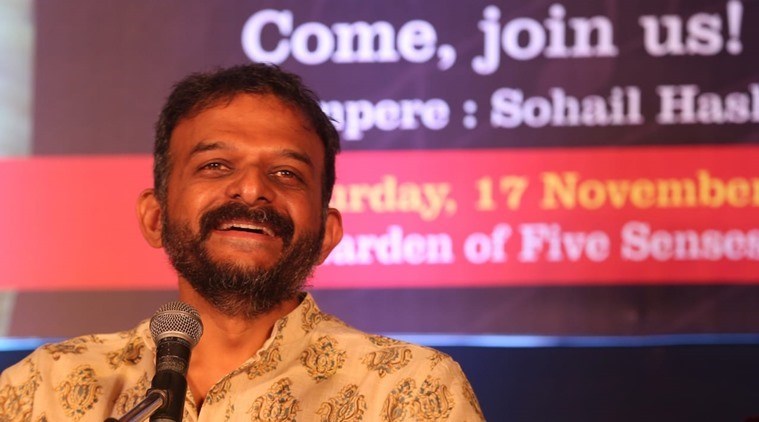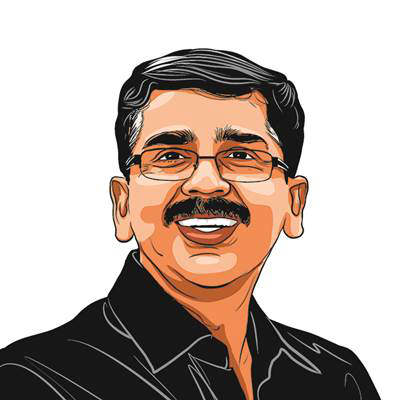Two auditoriums and a book
by S GopalakrishnanWritten by S Gopalakrishnan | Updated: January 31, 2020 5:38:06 pm

Rukmini Devi Arundale and MS Subbulakshmi.
Rukmini Devi Arundale passed away in 1986 and M.S. Subbulakshmi in 2004. Both of them lived and enriched the cultural contours of the city of Chennai for decades together in the pre and post-independence years. The many-faceted dimensions of their lives could be revisited in this city through many pathways.
Rukmini Devi Arundale influenced the city as a theosophist, revolutionised the South Indian classical dance forms, laid foundations of animal activism of Madras, established Kalakshetra, made India’s first Montessori educational institution and so on. M.S. Subbulakshmi was the favorite singer of none less than Gandhi and Nehru, the first Bharat Ratna awardee artiste of the country, the first Indian artiste who performed in the United Nations, the voice that made Carnatic music popular among the music lovers in the rest of India, a brave woman who stood in front of the Tamil Isai movement of the 1930s and a graceful human being who remained as the unquestioned pride of the city for more than seven decades.
On January 30 this year, the day of Bapu’s martyrdom, their names came to the newsrooms for wrong reasons. Kalakshetra Foundation, a cultural academy dedicated to the preservation of traditional values in Indian art and crafts has backtracked from permission given earlier to keep Rukmini Arangam Auditorium for the release of the latest book by T.M Krishna, ‘Sebastian and Sons’, a comprehensive work on the makers of the musical instrument Mridangam.

T M Krishna’s latest book Sebastian & Sons was scheduled to be released at Kalakshetra Foundation. (Source: File Photo)
In a letter to the publisher of the book, Revathi Ramachandran, the Director of Kalakshetra Foundation, said, “Kalakshetra Foundation is an autonomous body under Ministry of Culture, Government of India. Being a Government organisation, it cannot allow any programme that may instigate political, cultural and social disharmony.”
Now, the book is going to be released on February 2 at the M S Subbulakshmi auditorium in the Asian College of Journalism campus. This twist of events brings back a memory from 1943, when the Chennai Music Academy denied permission to M S Subbulakshmi for a concert and she in response performing in the open air just across the academy attracting thousands of music lovers.
This happened in the backdrop of the Tamil Isai Movement. On August 17, 1941 “a conference of votaries of music in this part of the country” was held in Chennai for ‘encouraging Tamil songs’ in Carnatic music and passed a resolution in that direction.
The resolution asked “the Sangeetha Sabhas (are) to arrange kacheries in such a way that the songs were in Tamil and that only a minor portion of the kacheri was devoted to songs in other languages”. However, the Madras Music Academy and the Indian Fine Arts Society, two front running music organisations opposed this idea. But, MS along with D K Pattammal insisted on inclusion of Tamil songs to support the cause during the December season concert of 1943 at the Chennai Music Academy. When the organisers refused her wishlist, MS decided to give her concert outside the Academy, that too as a ticketed one. Seventy seven years back, the concert raised Rs 37,000, at a time when Lata Mangeshkar was getting Rs 600 for singing a Hindi film song!
It is poetic justice, indeed, that in 2020 an auditorium named after M S Subbulakshmi is hosting the release of the book ‘Sebastian and Sons’, on the Mridangam makers. Had Rukmini Devi Arundale or MS been alive now, both of them would have tweeted in support of the path-breaking book on a so far hidden story of a section of people who played a major role in making Carnatic music as beautiful as it is today.
For all the latest Opinion News, download Indian Express App
© IE Online Media Services Pvt Ltd
More From S Gopalakrishnan

An administrative register cannot record nuances of culture of a land, its people
Let us hope India won’t have literatures of this kind a few decades from now — stories about how a fakir was finding it difficult…
Kerala controversy over cartoon criticising bishop reflects social crisis
Any refusal to introspect may only deepen the crisis. How is it that a society which prided itself on nurturing art forms such as Chakyar…
This Hindustani singer does his riyaz on streets and warns people about climate change
Why a musician in America is drumming up awareness of climate change through riyaz...
- Tags:
- TM Krishna
0 Comment(s) *
* The moderation of comments is automated and not cleared manually by indianexpress.com.